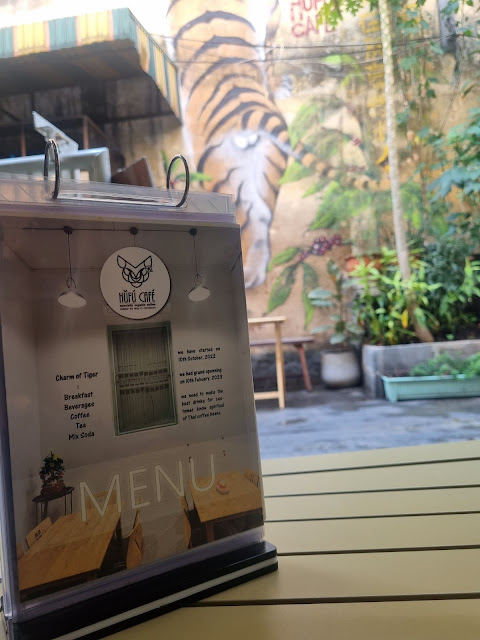How to Travel Respectfully and Avoid Annoying the Locals
Traveling is one of life's greatest joys. It lets us explore new places, experience different cultures, and broaden our horizons. But it's important to travel respectfully and avoid behaviors that might annoy the locals. In this post, we'll chat about why respectful tourism matters, what can happen when tourists behave poorly, and how you can be a mindful traveler.
Understanding the Impact of Tourism on Local Communities
Tourism brings both upsides and downsides to local communities. On the bright side, it creates jobs and generates income. But it can also lead to higher prices and push out local businesses. Culturally, tourism can help preserve traditions, but it can also cause a loss of cultural identity. Environmentally, tourism can support conservation efforts, but it can also lead to habitat destruction and pollution.
Pre-Trip Preparation for Respectful Travel
Respectful travel starts before you even leave home. Research the cultural norms and etiquette of your destination. Learning a few basic phrases in the local language—like greetings, asking for help, and ordering food—can make a big difference. For instance, learning a few Thai phrases helped me connect better with locals when I moved to Thailand. Understanding the local laws and regulations is also crucial to avoid any legal hiccups.
Dressing Appropriately and Behaving Respectfully
One of the simplest ways to show respect is by dressing appropriately. Different cultures have different standards of modesty. In conservative countries, covering your shoulders, knees, and sometimes your head is important. Dressing modestly not only shows respect but also helps you blend in and avoid unwanted attention. When I first arrived in Bangkok, I noticed many tourists wearing inappropriate clothing, which isn't suitable for visiting temples.
Behavior in public spaces matters too. Keep noise levels low and avoid disruptive behaviors like loud talking and public displays of affection. Respect religious and historical sites by following the rules and being mindful of your actions. In Thailand, I've learned to avoid being loud because it’s important to respect local customs, especially in public spaces.
Blending In and Avoiding Unwanted Attention
Blending in helps you enjoy a more authentic experience and avoid unwanted attention. Dress like a local, use public transportation, and visit non-touristy areas. I love early morning walks or bike rides to see lesser-known places that most tourists don't know about. This not only shows respect but also enriches your travel experience.
Learning a few key phrases in the local language can also help. Even if you can't pronounce them perfectly, locals appreciate the effort. I remember feeling so rewarded when I learned to say basic greetings in Thai. It made interactions much smoother and more pleasant.
Handling Mistakes and Supporting Local Economies
We all make mistakes, especially in unfamiliar cultures. If you make a cultural misstep, apologize sincerely and learn from the experience. Engage positively with locals and show a genuine interest in their culture. In Thailand, avoiding confrontation and understanding their way of resolving issues helps maintain harmony.
Support local businesses by choosing them over international chains. Avoid inappropriate haggling and always tip and pay fairly. This not only helps the local economy but also shows appreciation for the services provided. For example, I love dining at local restaurants and trying dishes like Tom Yum, which has become my favorite.
Responsible Photography and Social Media Use
Taking photos and sharing them on social media is part of travel, but it should be done thoughtfully. Always ask for permission before taking photos of people and avoid taking pictures in sensitive or sacred areas. Be mindful of how social media can influence tourist behavior and avoid promoting disrespectful actions.
The Long-Term Benefits of Respectful Tourism
Respectful tourism enhances travel experiences and builds positive relationships with local communities. It contributes to sustainable tourism practices and helps preserve the beauty and culture of the destinations we love to visit. Living in Thailand has been an enriching experience for me. By learning the language and customs, I've had unique experiences and made lasting memories.
Conclusion
Traveling respectfully and avoiding behaviors that might annoy the locals is crucial for a positive and enriching travel experience. By preparing adequately, dressing appropriately, behaving respectfully, and supporting local communities, we can all contribute to a more harmonious and enjoyable travel experience for everyone.
Remember, the key to respectful tourism is empathy and mindfulness. Enjoy your travels and make a positive impact wherever you go!
FAQs
1. Why is respectful tourism important?
Respectful tourism helps preserve local cultures, supports the local economy, and minimizes the environmental impact of travel.
2. What are some key phrases to learn before traveling?
Learn basic greetings, polite expressions, and phrases for asking for help, directions, and ordering food.
3. How can I support local economies when traveling?
Choose local businesses over international chains, avoid inappropriate haggling, and tip fairly.
4. What should I consider when dressing for a trip?
Dress modestly, especially in conservative countries, and follow local dress codes to show respect.
5. How can I minimize my environmental impact while traveling?
Reduce waste by avoiding single-use plastics, support eco-friendly tours, and respect wildlife and natural habitats.







Comments
Post a Comment